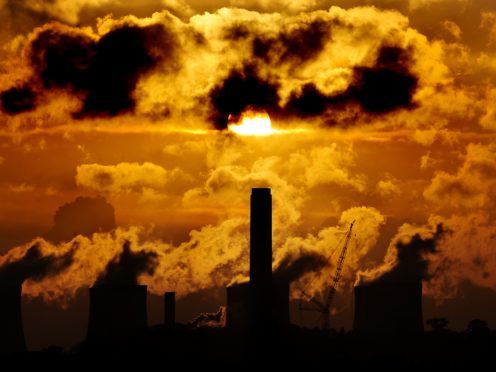The world is “already well on the way” to global temperature rises of 1.5C, experts have warned as countries meet to finalise a major report on the issue.
Representatives of 195 governments and scientists are meeting in South Korea this week to agree a report on the impacts of a rise of 1.5C above pre-industrial levels and the action needed to limit global warming to that level.
The Intergovernmental Panel on Climate Change (IPCC) was asked to draw up the report after countries agreed to curb warming to “well below” 2C above pre-industrial levels and to pursue efforts to limit rises to 1.5C.
The tighter target was included in the global Paris Agreement on climate change agreed in 2015 amid fears that warming beyond 1.5C could threaten the survival of some countries, such as low-lying island states.
“Long-term #climatechange indicators highlight need for urgent #ClimateAction. Rate of sea level rise is accelerating and much of the thick multi-year Arctic ice has melted. CO2 concentrations are record-high." WMO Deputy SG Elena Manaenkova at #IPCC https://t.co/wUCAmGbpLV pic.twitter.com/GuLfg7c2IN
— WMO | OMM (@WMO) October 1, 2018
In order to stem rising temperatures, the world will need to cut out greenhouse gas emissions to zero and the report is likely to say that carbon emissions must fall to zero by 2050 to meet the 1.5C target.
It is likely to spell out the need for urgent and far-reaching changes, from clean energy to measures to remove carbon from the atmosphere.
The World Meteorological Organisation (WMO), which along with the UN Environment Programme sponsors the IPCC, has warned global temperatures have already climbed more than 1C above pre-industrial levels.
WMO deputy secretary general Elena Manaenkova said: “Global mean temperatures in 2017 were about 1.1C above pre-industrial levels.
“Unfortunately we are already well on the way to the 1.5C limit and the sustained warming trend shows no sign of relenting.
“The past two decades included 18 of the warmest years since records began in 1850.”
She added: “Long-term climate change indicators highlight the need for urgent climate action.”
Hundreds of experts have assessed all research on the subject to reach the report’s conclusions and it will now be discussed by scientists and government representatives.
Subject to approval, the “summary for policymakers” report will be published on Monday October 8, though there are concerns that some governments could try to water down the study.
But IPCC chairman Hoesung Lee told the opening of the meeting that governments had asked the IPCC to draw up the report to help them tackle climate change.
“Together we will produce a strong, robust and clear summary for policymakers that responds to the invitation of governments three years ago while upholding the scientific integrity of the IPCC,” he said.
Greenpeace international executive director Jennifer Morgan said the IPCC report comes in a year of climate impacts such as forest fires, heatwaves and typhoons, and the global community was “fed up” with inaction on the issue.
“This IPCC report is our moment of truth. People are hurt and demanding action. Governments and industry have for too long wasted time on talk and finger-pointing.”
But she said there was hope as the report would make clear the choices and the trade-offs.
“For decision-makers around the world, it is now their responsibility to listen and step up with real climate leadership.”
